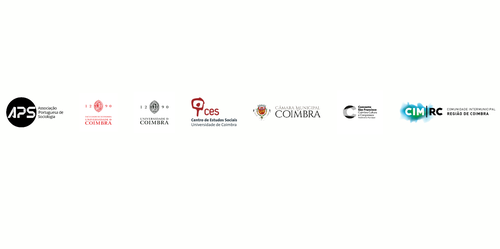Call for papers | Security, Defense and Armed Forces
Coordinators:
Ana Romão, (Academia Militar; CICS.NOVA)
Maria da Saudade Baltazar (Uévora; CICS.NOVA)
Nuno Poiares (Inst. Sup. C. Policiais e Seg. Interna)
Defense and Security in Polarized Societies: What Challenges?
The idea of polarization includes a whole set of social cleavages and radicalized views that sometimes emerge in the partisan political space, sometimes echo from inorganic movements (see the denialists) and also propagate in other contexts and interactions of everyday life. The digital universe is the privileged stage of this phenomenon, being at the same time a condition for its extraordinary expansion. The Annual Internal Security Report (RASI, 2021), precisely highlights the activity of actors, domestic and external, in actions of disinformation and propagation of conspiracy theories that result in extremist anti-system narratives.
What is disturbing isn’t, obviously, the absence of social contestation, the divergence of views and points of view. It is, as said in the general call of the XII Congress, the “growing fragmentation of society around crucial issues for the collective future of humanity” that summons the sociological gaze. It is to understand the potential effects of this movement on interactions, social practices and institutions that structure collective life. It is to understand how phenomena of social exclusion and access to well-being, including access to security in the broadest sense, lead to toxic polarization.
During the pandemic, metaphors of war were often used in allusion to the gravity of the situation and in support of the exceptional measures that had to be adopted. Armed forces and Security forces were engaged in broad scope support missions, with a strong presence in the public space. After the Russian invasion of Ukraine, fears of the use of nuclear weapons and the global consequences of the war are stirred.
Defense issues, widely mediated and impacted by the logic in cyberspace, and the very role of the Armed Forces gain, in this context, another meaning at the same time that they raise new challenges.
In order to reflect on the challenges facing security and defense in the context of polarized societies, we invite sociologists, researchers from other areas and professionals in the field, to share knowledge and relevant work experiences.
As an example, proposals addressing topics such as:
- Geopolitical tensions and security policies
- Wars, peace support missions and post-conflict (re)construction
- Human Rights, collective action and public security
- Human Rights and multicultural police and military education
- Public opinion and Trust in military and police institutions
- Hate speeches and expressions of radicalization on social network
- Social perception of (in)security risks
- Intersectoriality and security issues
- Ways of recruiting and professionalizing the military and police force
The works to be presented can take the form of oral communication, posters or visual documents such as short films (e.g. short films focused on projects or interventions).
The proposals, despite the differences between academic and non-academic contexts, must be formulated considering a theoretical framework, objectives, methodologies used, diagnosis, results and conclusions.
The rules and deadlines to consider for the submission of abstracts, as well as more information about the XII Portuguese Congress of Sociology, can be consulted on the APS website at http://www.aps.pt.
The Thematic Section's coordination will select the best communications to be proposed for publication in the journal SOCIOLOGIA ON LINE
PDF Version
